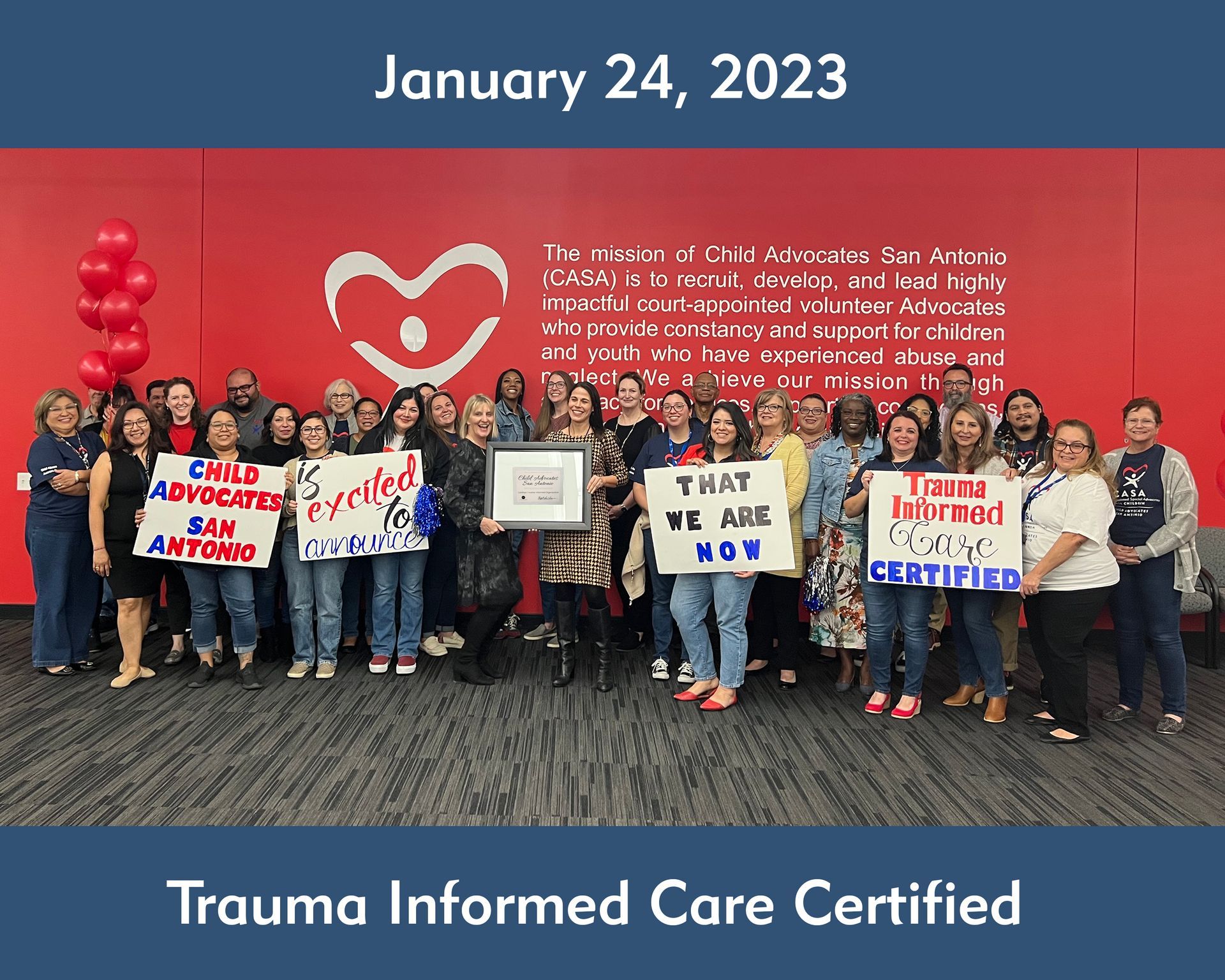Child Advocates San Antonio Achieves Trauma-informed Certification
Child Advocates San Antonio Achieves Trauma-informed Certification

Child Advocates San Antonio (CASA) announces that the agency has become a trauma-informed certified agency. CASA is one of the few agencies in Bexar County to achieve this designation.
CASA is dedicated to supporting children on their journey through their removal from home and the various issues that brought them into the child welfare system. It is critical we do this work through the lens and language of trauma-informed care.
Trauma-Informed Care is a journey that encompasses far more than training; it’s a cultural approach to our people, processes, practices, and outcomes. It’s about deeply embracing that the children we advocate for in the foster care system have experienced trauma. Because of this awareness, we realize the impact of trauma, recognize the signs and symptoms, respond, and actively resist re-traumatization.
Research shows that childhood trauma impacts children’s social interaction, ability to play, and educational achievements. Chronic exposure to trauma affects memory, problem-solving, executive functioning, ability to focus, increased negative behaviors, and substance abuse. Children in foster care have, by definition, been exposed to trauma, both through the circumstances that lead to their removal and the removal itself.
Trauma-informed care offers the opportunity for children to engage more fully in their care. It allows them to develop stronger, more trusting relationships with their CASA Advocate or other adults in their lives. And, on the other side, trauma-informed care can help reduce burnout among the volunteers and staff serving the children, leading to more continuity for the children.
Due to our volunteers and team members being equipped with this knowledge and training, we serve with compassion and excellence. We are fully committed to continuously improving and to fully embedding a trauma-informed approach into our policies and processes and to embracing the language and intent of being trauma-informed throughout our agency. We view this as an excellent opportunity to simultaneously pursue diversity, equity, and inclusion to nurture a sense of belonging.
Trauma is healed through relationships, and only by increasing our knowledge and awareness can we build healthy relationships.








